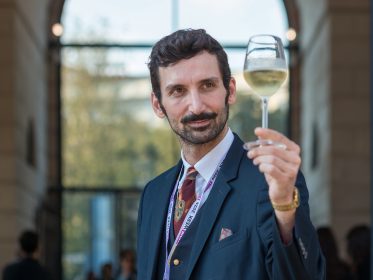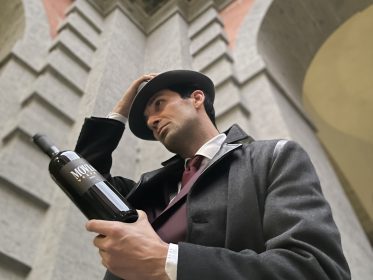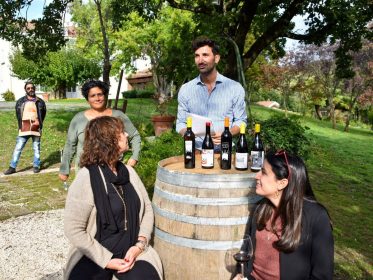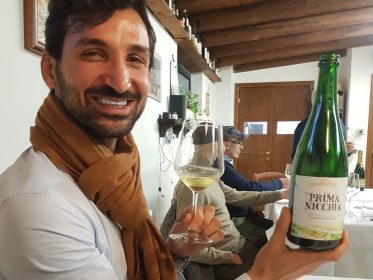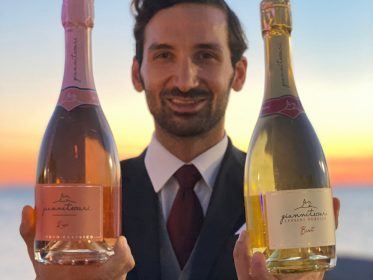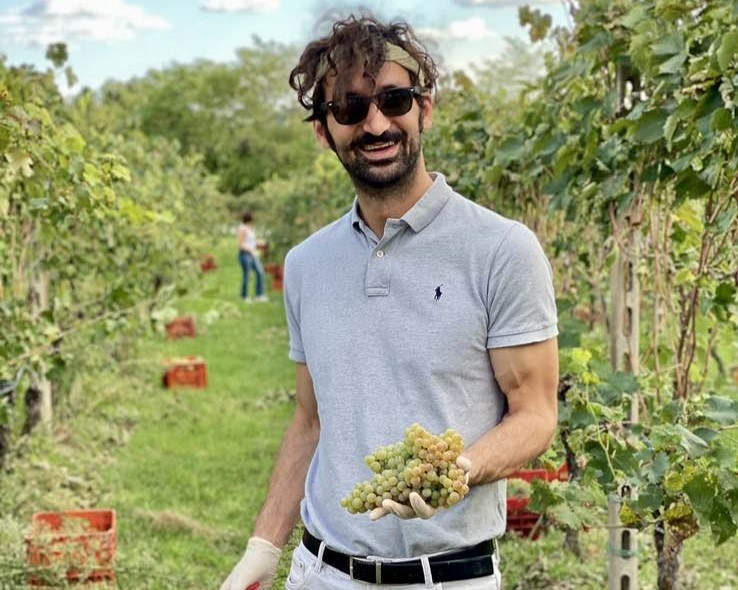Wine Beyond Data: Nello Gatti on Crafting Wine Stories that Speak to All
Author: Veronika Busel
Meet Nello Gatti, a renowned sommelier and acclaimed figure in wine communication, recently appointed as an Ambassador for the Wine Travel Awards (WTA). Nello has been part of the WTA community since its inaugural year and was awarded the WTA 2021 “Author of the Year,” selected by both public and professional jury evaluations.
Nello has distinguished himself through his ability to engage and educate diverse audiences with masterful storytelling and deep knowledge of the wine world. His influential work is showcased through his popular series on Foodclub.it and his in-depth explorations on Lambasciatore.com, where he seamlessly connects wine to broader cultural, historical, and societal narratives.
In our latest in-depth interview, Nello shared heartfelt reflections on his dual role as a wine communicator and sommelier. He outlined his vision for making wine communication more inclusive, emphasizing that true connection with audiences goes beyond technical data and involves weaving together stories of history, culture, and personal experience. Nello also discussed the challenges of modern wine communication, where metrics often overshadow authenticity, and how he is working to change that. He gave us an inside look at his latest major project and shared a personal, exclusive reflection on his recent recognition as a Vinoinfluencer. Enjoy reading!
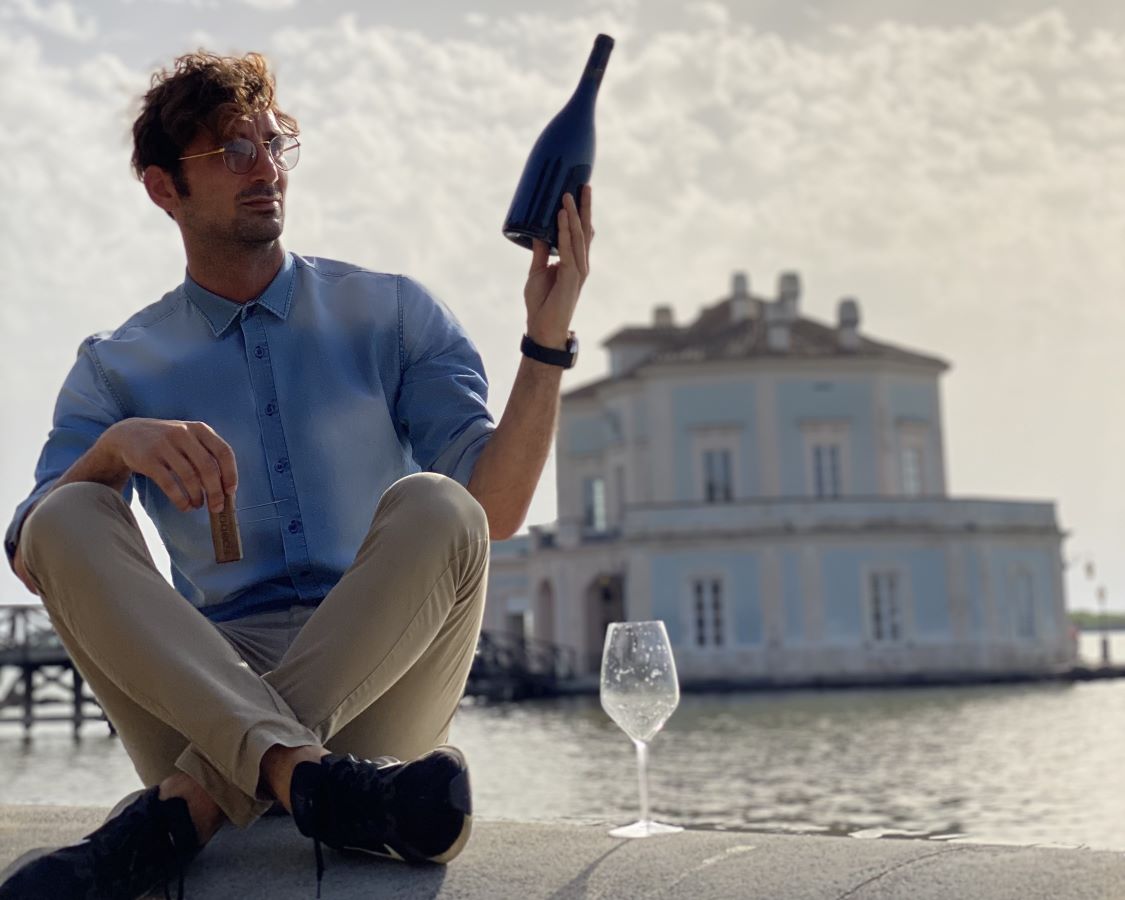
As both a wine communicator and a sommelier, you navigate two distinct roles within the wine industry. How do you integrate these positions to offer unique perspectives, and what strategies do you employ to make wine communication appealing not only to experts but also to enthusiasts with varied backgrounds?
We are always improving, evolving, and changing, so does the wine industry; nothing stays still. Considering the wine professionals, I believe that wine communication needs to be oriented involving all the wine business aspects from producers to retailers, including all the stakeholders.
The biggest challenge we face, and the most urgent change needed, is that wine communication shouldn’t be directed by only one point of view. It should begin with those who have the education and expertise but should also be open to a broader audience, covering various topics that can provide a wider perspective on wine.
Beside that, I don’t want wine communication to be limited only to technical data, passed from wine people to wine people. We have plenty of ways to make it engaging by incorporating history, art, nature, trends, and elements outside the wine business that can resonate with everyone, not just wine professionals.
Don’t forget is a matter of human being, not a “simple” alcoholic beverage that need to be sold.
The method of communication can vary, whether it’s a masterclass, an article, or other formats, but it must always be targeted towards a specific group or audience with a hint of education and interaction. Day by day, we need to bring people back to the pleasures of life, including wine. For many, wine is primarily seen as alcohol, something toxic, or something to simply party with – especially for people like my former colleagues in finance and banking (note: before his career in wine, Nello studied Business and Economics in Vienna). Our goal is to bring wine closer to non-wine people, and the best way to do that is to connect it to subjects they already relate to.
In your approach to communicating about wine, are you aiming to attract a universal audience, or do you adapt your communication style to meet the specific needs of different groups, from wine experts to the general public?
I can’t solve all the problems by myself, but in my daily activities, I aim to engage people and communicate about wine – on social media, at wine fairs, including the most reputable ones, and through events – using a more democratic approach to captivate not just wine experts but a broader audience.
I like to connect wine stories with elements from books and movies, linking them to historical figures like Napoleon, Dante, or Christopher Columbus to engage people’s memories and provide information that resonates with them, associated with pleasure. Thus, I truly believe that talking about wine to certain audiences does not need to stick strictly to technical language. I haven’t met a person engaged with a specific wine because of its hawthorn flavours or because of the ruby red colour.
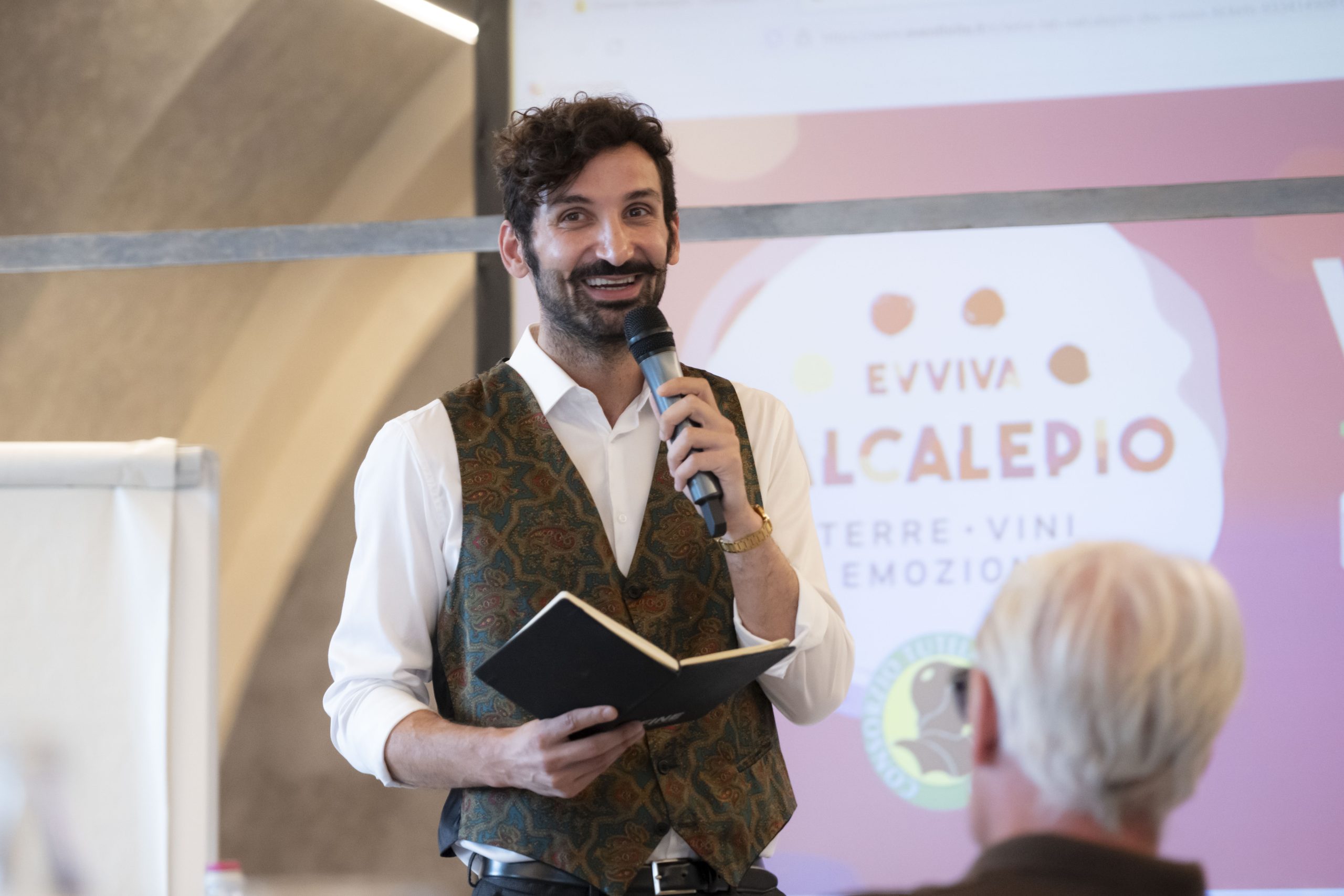
Considering your deep involvement in the wine industry, do you find that your role as a sommelier enhances your ability to communicate about wine, allowing you to share more nuanced insights?
I’ve earned a few certifications as a sommelier, but then I decided against pursuing a WSET Diploma. The deeper I delved, the more I felt constrained by its rigid evaluation system. While I respect the WSET and those who’ve earned their diploma, that path just wasn’t for me. The learning style, reminiscent of an Excel sheet, felt too restrictive and with no option to discuss any part of the program. For instance, during my WSET Level 2 exam, a question on Pinot Grigio was framed so narrowly – the required answer was “from the Veneto region, light-bodied, high acidity, etc.” among other things, but it was very limiting! However, as I am from a country with numerous Pinot Grigio producers across various terroirs – I knew from experience, there are so many factors influencing what their Pinot Grigio wine will taste like.
I understand the need for specific terminology and structured learning, especially for those new to the industry from varied backgrounds. But for someone like me, raised amidst the rich wine culture of Italy, such a prescriptive approach can feel limiting and way too schematic. My upbringing, filled with vivid memories of wine and food pairings has shaped a broader perspective.
What I love the most is to talk about wines with different people, whether they be a consumer, producer, or a Master of Wine. I like to have my own opinions on everything, not just follow whatever someone else says. You develop your own ideas, your own stance, your own perception. We could be right or wrong, but this is how I’ve developed myself, my professional skills, my soft skills, and I’m trying to contribute something beneficial for the wine community thanks to all these influences. This personal approach helps me weave my insights with wider industry knowledge, aiming for a richer, community-focused comprehension rather than narrow technical mastery.
Holding a WSET Diploma doesn’t necessarily prepare one for running a restaurant or becoming a successful sommelier, as essential hospitality and people skills are often under appreciated in such courses. Just like in architecture or law, a degree alone doesn’t make one exceptional; practical experience and learning from inspirational leaders do.
What we want is to deeply enjoy the experience, and it can be enhanced during our interaction with the sommelier or salesperson, especially when they bring their own unique style in knowledge and manners. This can be more original, along with their own “recipes,” recommendations, or other authentic touches, much like what most bartenders are actually doing. If cocktails are gaining more popularity than wine, this could be one of the reasons. Just think about it.
But in the same time, do we always have this? I think we sometimes miss the personality here, starting from the uniform that we’re supposed to wear, but also restrictions go further – to how we need to speak – to focus on data.
Have you spoken to a sommelier during a wine fair? They often repeat a demo such as, “When we are here, in this territory, making this wine from this grape, with this aging process… etc., etc.” And 99 percent of people will think, ‘What does this remind me of? What legend and story stand behind that? Give me something I can relate to!’
My question is always: Who am I talking to? A Netflix lover? A football player? I love finding ways to connect through personality and attitude. It’s people who remind me of perceptions, sensations, and I can elaborate that into an appealing story about wine for them. And I like to discover more about those people; maybe wine will help me to do so. This is the approach I’m following and believe in.
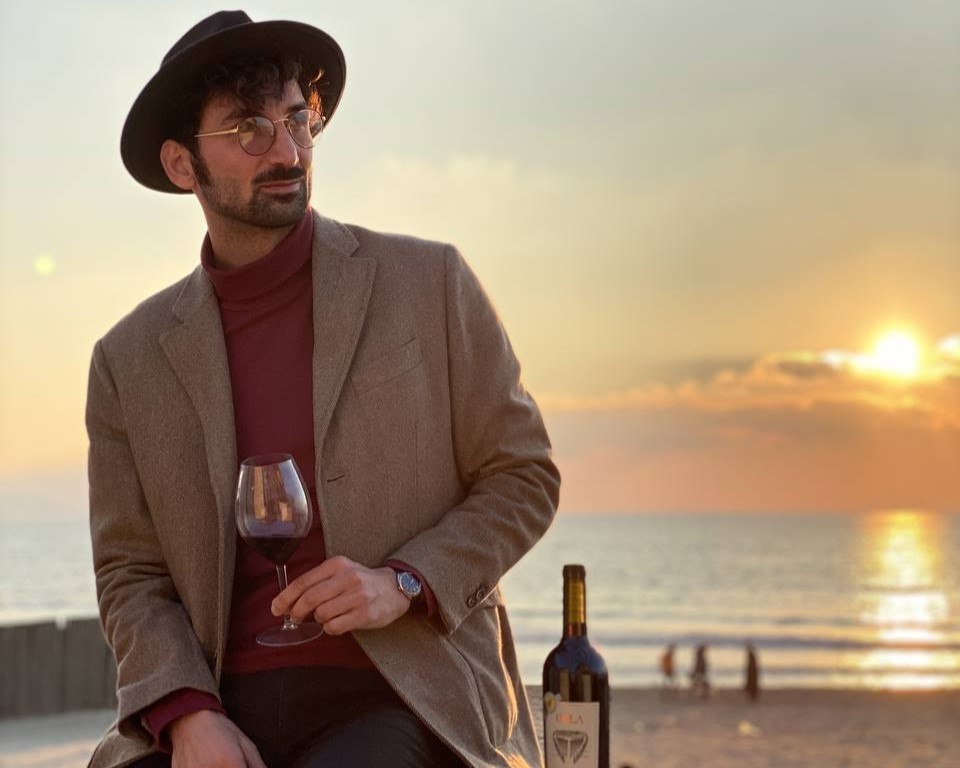
When dealing with the differing needs and preferences in the wine industry – from consumers to producers – how do you manage situations where not everyone is on board with such a flexible and less conventional strategy?
We certainly face a lot of challenges, whether from consumers, the hospitality industry, or producers’ viewpoints. Yet, we must seek a compromise. There’s a saying that ‘the truth is in the middle.’ However, if we need to align these differing perspectives, we should start with the producers, and their communication needs to be updated to reflect current societal norms without losing touch with the times and reality. We hear too many claims of ‘3rd generation winegrowers’ and so on in families that were not originally supposed to produce wine at all.
At this juncture, restaurants should bridge the gap between these parties, and it often begins with addressing their own staff issues, such as unfair pay that fails to keep staff motivated.
Now, restaurateurs are shifting their strategies to succeed. Previously, they might have thought simply opening a restaurant would bring people in – an easy success. That’s no longer sufficient. People don’t just want to pay for a meal; if you want them to support your brand or project, you need to be a leader, an inspirational figure, keeping people engaged and learning how to attract and remain relevant to them.
On the consumer end, we need to address them more effectively, as many opt for the simplest route. I believe you need to continuously build a strong brand based on professionalism and a personal touch. You must demonstrate what you offer and how you can be relevant, asking, ‘What value do you bring to the table?’
Regarding influencers, in my opinion, some with significant followers might not sustain success in the long term. We should focus less on the number of followers and more on their contributions: their communication style, their dedication to producers, and how they craft their message. Nothing is more beneficial to this scenario than fostering more engagement and expanding the community.
Again, the biggest challenge is that all these actors should speak with each other to figure out the best solutions.
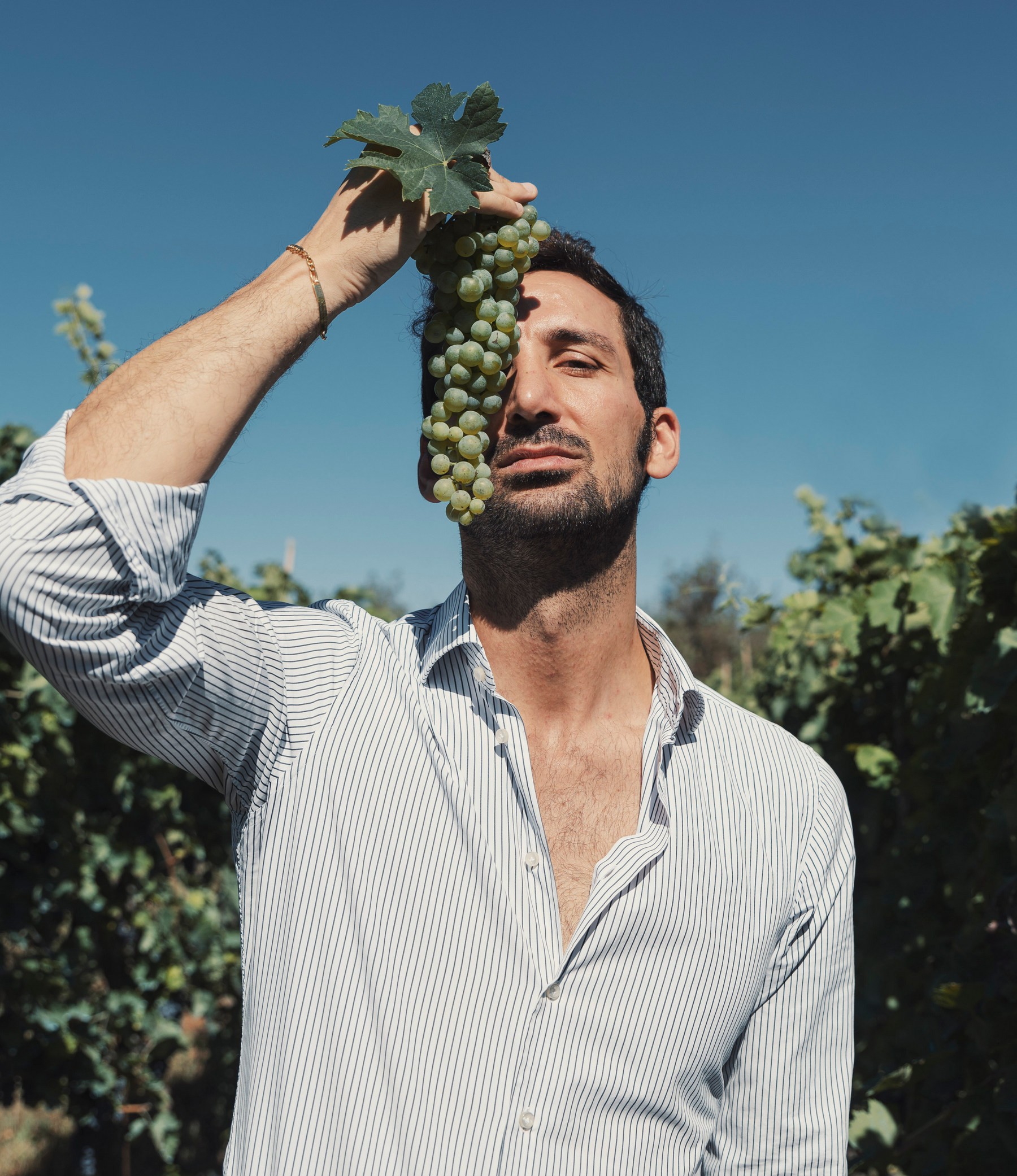
You mentioned influencers. With so many out there today, do you have specific criteria that guide how you evaluate and navigate the world of wine influencers?
I don’t believe that a true wine influencer exists right now. At least, not like in other industries. This might not be a popular opinion, but if I compare the wine industry to others, like fashion, for example, the wine industry is two steps behind.
All these people, whether they call themselves ‘influencers’ or ‘wine communicators,’ are very often valued for their follower counts, engagement rates, and similar metrics, which, in my opinion, are meaningless. It’s not that these metrics aren’t important – they are. It’s crucial to connect with people and develop a message that can be spread worldwide without incurring massive costs.
But I don’t want to overlook the part that involves sacrifice – studying, learning, collaborating, actively listening. All these aspects have become less emphasized in the current influencer landscape. I also don’t support putting too much emphasis on awards or ratings because they often evaluate people based on follower numbers. That should be the last thing to consider. The most important thing is to assess people for who they are and what real value they could deliver – are they genuine, are they really contributing, are they truly engaged in this market? Can I have a real conversation with them, are they thoughtful individuals? Because behind all the likes, reaches, and engagement metrics, they are real people.
I would prefer to focus on genuine people with real messages who want to contribute and take actions with others. There are so many opportunities from both the producers’ and community’s perspectives if we do this.
Again, I’m not against awards; I’m just saying we need to be more discerning. If a category is relevant to me, I might apply, but if it doesn’t align with my values, I won’t. I see myself as a lifelong student of the wine world – a person who is constantly learning, developing, and listening. Every day is an opportunity to learn something new and to share something of value.
My message shouldn’t be less important just because I have fewer followers. That’s not how it should work. We should evaluate what each of us can contribute and respect that; that’s the key to fruitful collaboration and cooperation. I believe there should be recognition and a sense of democracy in this.
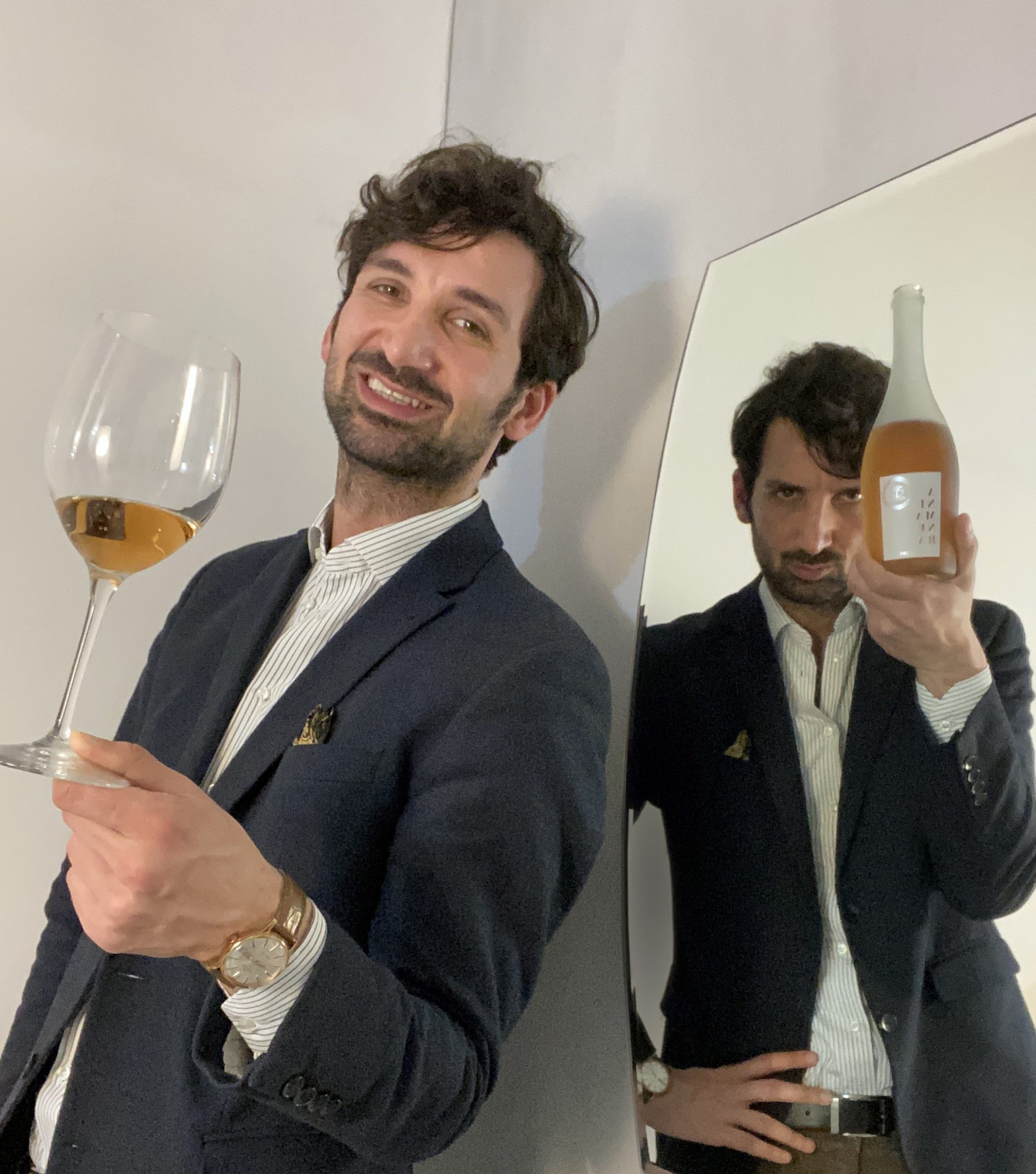
What do you like most about your work? Could you share a project that was particularly meaningful to you because you developed something important to you?
What I love about my day-to-day job is connecting with such a diverse range of people. Some clients come with unusual or even bizarre ideas, while others don’t know how to begin or how to bring their vision to life. What’s truly exciting about this work is helping them develop their projects, whether it’s creating a great label, designing a website, building a complete wine list, or even organizing an engaging event, wine route, or experience with all the right ingredients.
The best part is that these projects are born from everyone’s imagination and dreams. Not all of them can be realized, of course, but it’s always rewarding to see how many people come together to contribute to and support these ideas in their own ways.
I’ve worked on many projects, but the past few months have been particularly busy. I recently returned from Albania, a country that is rapidly adopting a more Western approach to business. They invited me to develop a brand-new restaurant and shape the wine list, which turned out to be one of my biggest projects.
Albania’s wine market is still young – they’re just starting to import wine seriously. To give you an idea, there are no official sommelier schools in the country yet, as it’s a relatively new republic and democracy.
This project felt like a blank canvas, and it allowed me to use my expertise not just to impose my ideas but to genuinely communicate with the market, the people, and the international community.
We developed a comprehensive wine list with 1,200 different labels. But again, the most important thing wasn’t the number of labels; it was the chance to share the stories behind these wines – the legends, the histories, and the narratives that Albanian people could relate to through the movies they’ve watched, the books they’ve read, or the music they love.
Now, they have a deeper connection to the wines, and that’s what made this project so special. For example, we spoke about Valpolicella, and not just Amarone, I approached each wine in a way that resonated with them. I saw these young people, just 19 or 20 years old, motivated and eager to develop this culture in their country, enthusiastic about immersing themselves in the world of wine.
My role was to bridge the Italian and Western perspectives with their culture, blending those elements together, like a true Ambassador.
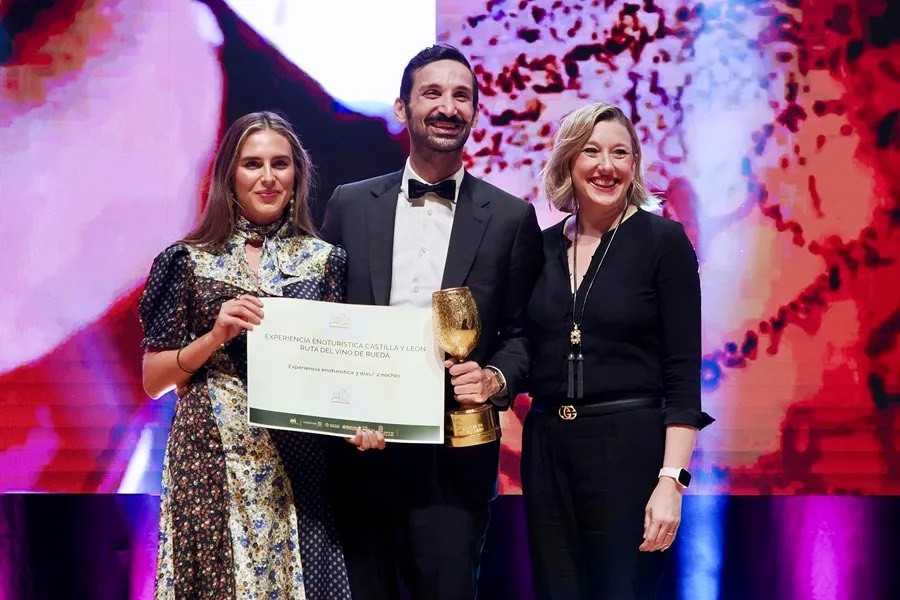
Your career has an international dimension, but how do your Italian roots influence your work today? Do you see yourself more as an ambassador for Italian culture, or do you take a more cosmopolitan approach?
I was born and raised in Italy, but I studied and worked in different places. I’ve always had this curiosity to explore both local and foreign cultures. I love to eat and drink local wherever I go, and I enjoy exploring new places. So yes, I am an Italian professional, but I’m not deeply rooted in Italian stereotypes.
I think Italian wines are fantastic, but I don’t close my eyes to everything else out of Italian pride. I believe French wines are also great, and we don’t need to compare them in a bad competitive way. What matters is that both countries produce excellent wines and have faced many challenges. I don’t agree with the mindset that says we’re the best and better than everyone else. It’s important to learn from what others are doing, both the good and the bad, and to stay objective.
For instance, Italy faced serious issues with methanol scandals a few decades ago and earned the mocking nickname ‘Italian Coca Cola’ while exporting overly sweet, low-alcohol Lambrusco to the US.
It made me sad, but we had to learn our lessons. We were too focused on the market, and I hope that Prosecco, our top player in export, does not follow that same path. This industry involves many factors, people, and a lot of money, but I appeal to conscious individuals to be smart, play their role, and follow a responsible business model. We need to be mindful, consider different influences, and show long-term respect to various aspects and people.

Wine consumption is in decline in many countries. How would you describe the era that wine professionals like you are working in?
This might not be a popular opinion, but I think we’re talking more rather than acting effectively.
We often discuss declining wine consumption and production, and I believe we have two paths forward: we can either focus on serious topics like environmental, social, and economic issues or engage in a meaningful discussion about them.
I don’t see the drop in wine consumption in some markets as a tragedy; I see it as a natural evolution. People change, and so do trends. Younger generations don’t need to consume wine the way their grandparents did, and that shift isn’t necessarily a bad thing – it’s just something we need to adapt to.
When it comes to decreasing production, we have to acknowledge that we’re producing a lot of wine. Over the years, production has outpaced consumption, and now we’re seeing the consequences of that.
What truly matters is our approach and adaptability. Instead of declaring an emergency or causing panic, we should look deeper, analyze the data, and understand the real issues at play. If market demand is decreasing alongside production, it’s not necessarily a disaster. It may be a consequence of haven’t taken seriously many factor, from nature to regulations.
Businesses and society are constantly evolving, and by taking a step back and considering the bigger picture, we can handle these changes more reasonably. It’s about taking thoughtful, measured actions rather than creating unnecessary panic.
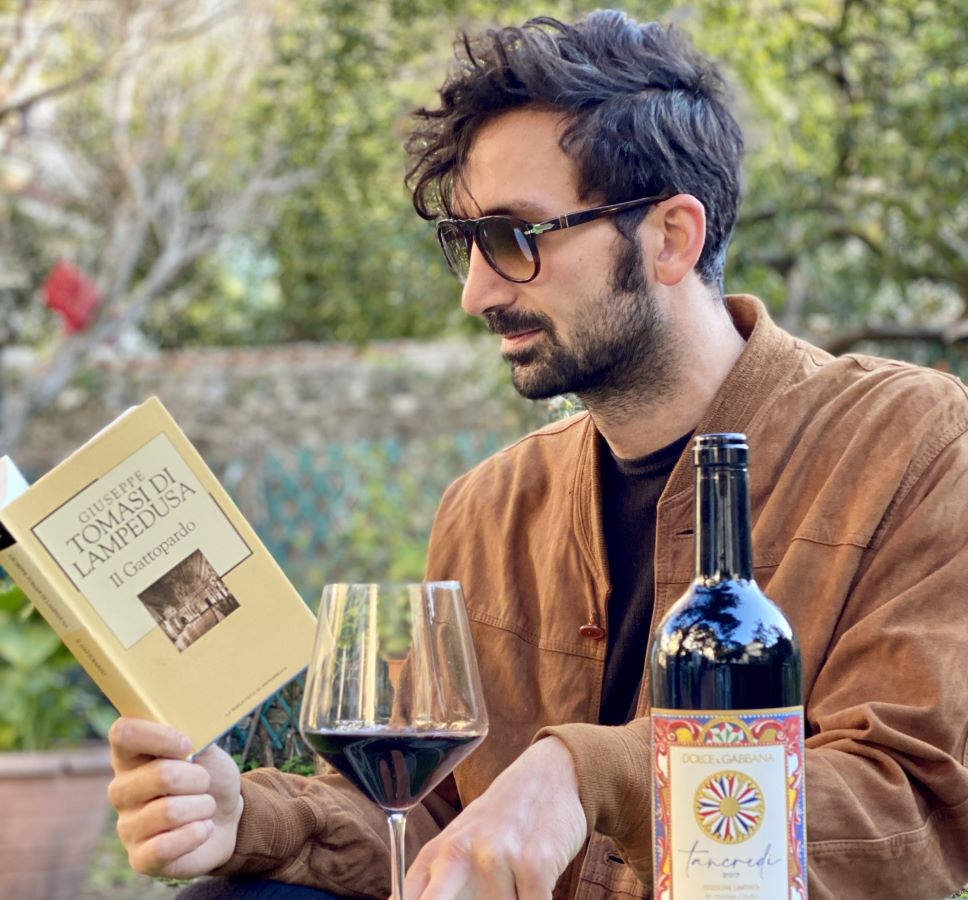
Is there something in the wine industry, particularly in wine communication, that you would really like to develop or improve at the moment but haven’t started yet?
As I first started in this career, my dream remains the same: to represent a professional wine community. Wine communicators are not well recognized, and anyone can enter this field, potentially undermining what other professionals are doing, giving outsiders more reasons to speak poorly about our category. I’d like to see regulations, required education, and official rules in place to ensure that real professionals in wine communication are recognized and receive the respect they deserve. I encounter various feedback, opinions, and lovely messages daily, but in the wine world, we are not immune to haters, fraud, misleading information, and injustice. I dream of a fair space for communication, as ‘comunicare è vivere, vivere è comunicare,’ as Veronelli once said.
Bonus: While preparing this interview, Nello received a Vinoinfluencers award, and we were among the first to ask him about this important event in his career.
Recently, you won the Vinoinfluencers award. What does this award mean to you? Could you tell us more about this award and your experience at the ceremony?
Receiving a reward, a ‘thank you,’ or an act of kindness is always a great pleasure for us, especially when we are constantly exposed to everyone’s comments and judgments. It’s funny; I was called up for a global wine influencers award, and when I stepped up to the stage as one of the winners, I took the opportunity to emphasize that we are not just influencers but real people. We shouldn’t lie to our community by focusing our efforts solely on numbers or content; instead, we should genuinely care for our audience with real content and a willingness to connect all parties. On the other hand, it has been amazing to connect with people from all over the world, which has given me more ideas and ways to interact and cooperate with other regions.
Stay connected with Wine Travel Awards:
- Facebook: https://www.facebook.com/WineTravelAwards/
- Instagram: https://www.instagram.com/winetravelawards
- LinkedIn: https://www.linkedin.com/company/winetravelawards/
